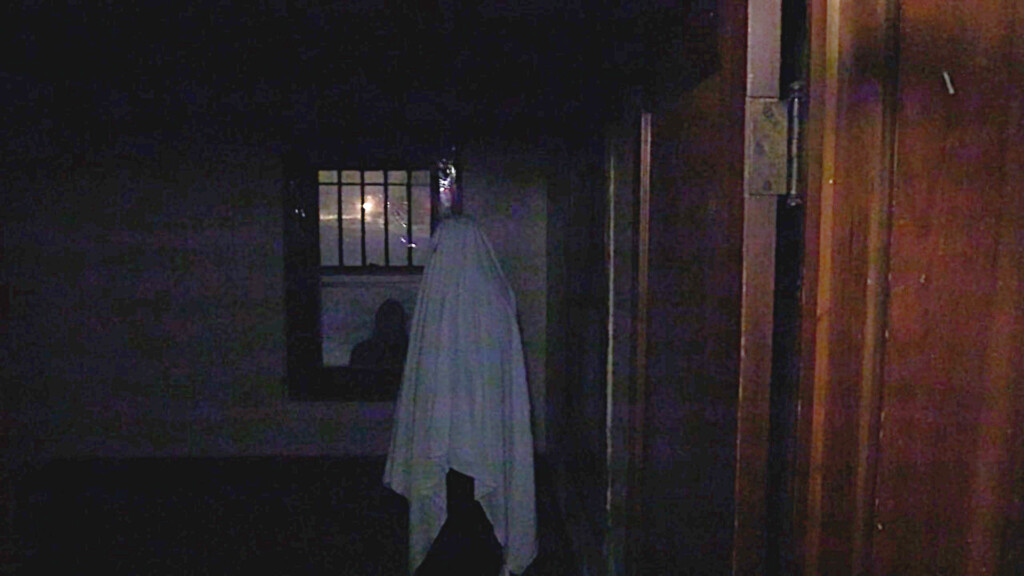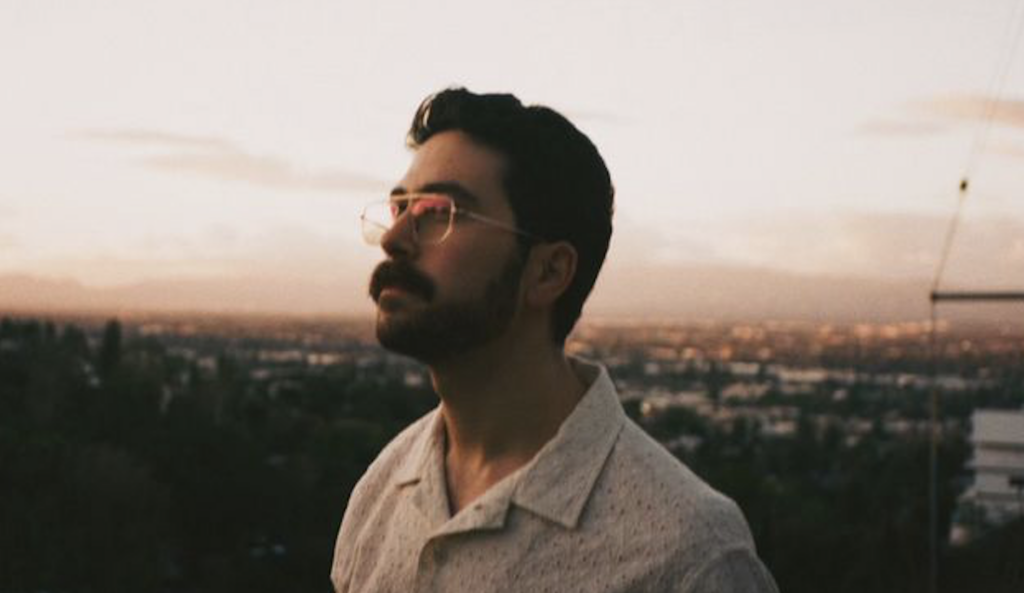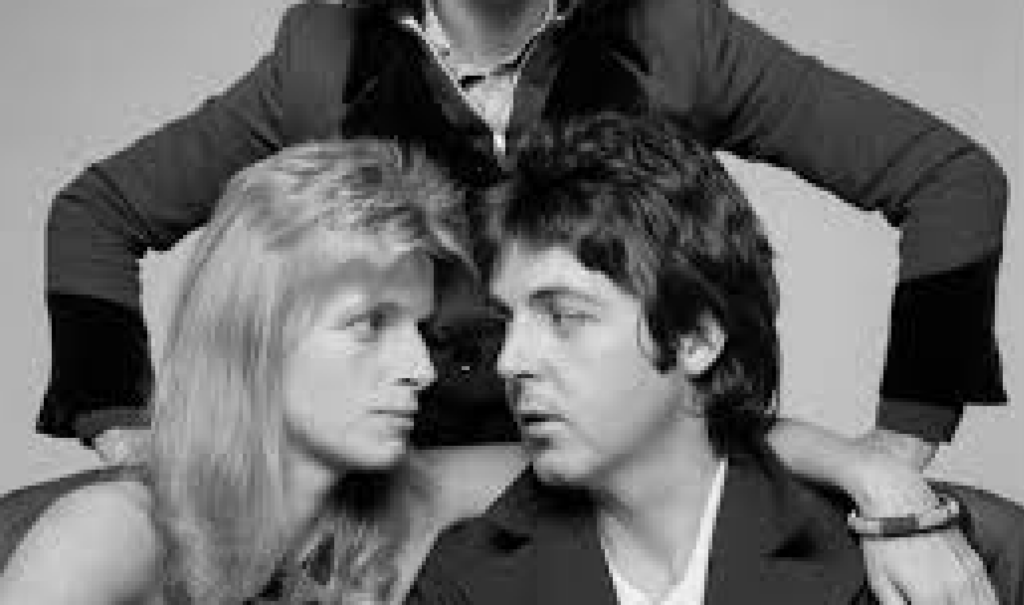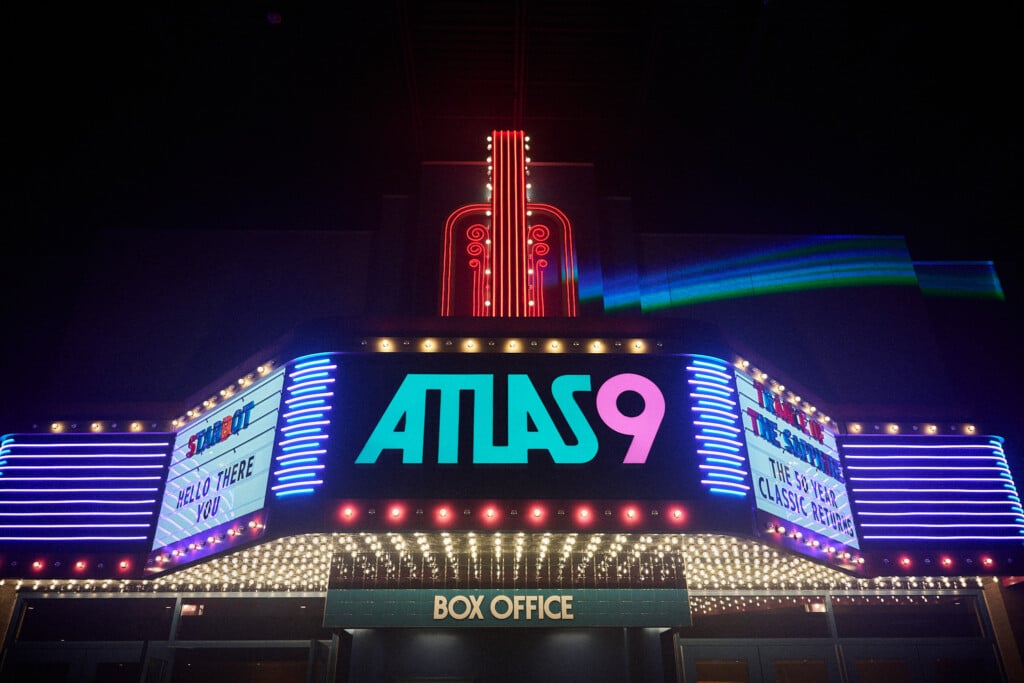Things keep getting better for homegrown indie horror hit It Doesn’t Get Any Better Than This
DieDie Video’s Nick Toti and Rachel Kempf catch us up on the 'little movie that could' ahead of an Aug. 16 showing at Screenland Armour. Since it will never be released on streaming or physical media, this is your one chance to catch the breakout festival phenom.
It Doesn’t Get Any Better Than This, from Kirksville-based filmmakers Nick Toti and Rachel Kempf, is an effectively creepy found footage tale about a husband-and-wife filmmaking team (Kempf and Toti, playing versions of themselves). The pair buy a run-down duplex in Kirksville with the hopes of using it to shoot a horror film they’ve written and do a little ghost hunting with a long-time friend, Christian.
As soon as Rachel and Nick close on the place, weird stuff starts happening. There are creepy artifacts all over the place—abandoned mattresses, old photographs, pentagrams sharpied onto the walls. But even more chilling are the people stopping in front of the house and staring at…something. Who are the people? Why are they there, and what are they looking at?
All Rachel and Nick know is that they keep growing in number, and it’s starting to freak them out.
We first covered It Doesn’t Get Any Better Than This last October, shortly after Toti and Kempf had started taking it to film festivals. In the months since, a lot has happened.
They’ve toured the country, picking up awards at festival after festival. They’ve gotten glowing writeups from notable horror movie websites. Most recently, It Doesn’t Get Any Better Than This was announced as part of the Midnight Madness lineup at the prestigious Toronto International Film Festival.
Before heading to the Great White North, Toti and Kempf are bringing their movie to Screenland Armour on Aug. 16 for a special showing. It was the perfect opportunity to catch up with them on everything that’s been going on, and what they have their eye on next.
The Pitch: Last time we spoke with the two of you, you’d just finished It Doesn’t Get Any Better Than This. Since then a lot of things have happened, including scheduling this upcoming screening! Catch us up.
Nick Toti: We’ve been wanting to screen in Kansas City for a while! We actually got rejected from Panic Fest when we first submitted, then later Adam (Roberts, owner of Screenland Armour and co-founder of Panic Fest) contacted us to do a screening there. It ended up working out even better than we’d hoped, because usually you don’t get paid for doing festival screenings, but this one we’ll actually make money from.
Rachel Kempf: Our movie’s gotten a lot of grassroots support and word of mouth from being at festivals. Our Letterboxd reviews have been great. It’s gotten some passionate fans. We got good reviews in Dread Central, Bloody Disgusting and Rue Morgue, which was also great, and then people at festivals telling their friends about the movie. After we screened it at the Salem Film Festival, we got multiple emails from people who were sad they missed out.
So, speaking of the festival circuit, the big news is that you’re now part of this year’s Midnight Madness lineup at the Toronto International Film Festival. Congratulations! How’d you pull that off?
Rachel: We’re more shocked than anyone! We did the whole festival trajectory, which started the way a lot of indie movies do. You know, you get rejected from 20 festivals at first, then finally one takes a chance on you and you get that momentum. We got a lot of rejection at the beginning, then we got accepted into Queer Fear Fest, where we got an audience award. Then we got into a bigger fest called Abertoir, which got more eyes.
Nick: When we won Best Feature at the Salem Film Festival, someone at that screening tweeted about it. The next day I had 20 emails in my inbox requesting screenings. I did some digging and found that this guy, who’s a pretty popular horror illustrator, had shared the tweet, and he had half a million followers. I reached out to say thanks, and he’d mentioned “I hope this comes to my city,” so I asked him where he lived, and he was like, “I live in Toronto.”
Initially, I was looking to set up a screening anywhere in Toronto, not necessarily TIFF, so I just asked, “Who do you know?” On his list of contacts was (TIFF Midnight Madness programmer) Peter Kuplowsky, and I thought “We’ll just start there, then cross that off the list and move to the next thing.” It turned out Peter loved the movie, and we ended up officially getting on the bill. It was a mix of dumb luck and either good or maybe obnoxious habits on my part.
It must be exciting to see something you’ve worked so hard on be championed by other people. What have you noticed that’s driving that audience appreciation? What kind of feedback have you gotten?
Rachel: The thing that comes up the most is the level of authenticity. I’ve seen it get compared to The Blair Witch Project, in that we’re playing a game with the audience. Nick’s gotten so good at making documentaries, and has such a knowledge of how we’d shoot it if we really were making a documentary, plus we have all this footage from 20 years back over the course of our friendship that is real stuff. I think people like playing a guessing game of what’s real and what’s fake. We’re playing ourselves in the movie, and so the line between real and fake gets weird for us, too. It’s something found footage movies strive for but don’t always achieve.
Nick: I suspect there’s also something appealing in that our movie seems like it was just made by a couple of people. Like, as if any idiot could have made something that looks like this. Nobody’s called us out on that, and not to gloat, because there is a level of craftsmanship in our work, but it flirts with that idea. Any time you can make something that makes people ask, “Why am I not making movies with my friends?” I think that’s an infectious feeling. That’s what the punk movement was like, right?. Like, I have idiot friends, we all suck at playing instruments, why don’t we start a band?
On that note, this is a lo-fi, ultra low-budget movie, but one of the things that makes it work, I think, is that because of the format you’ve chosen, all of that seems intentional. I had a similar conversation recently with the filmmakers who shot They Call Her Death on 16mm, that the lower-quality format makes any mistakes or production limitations seem like they’re there on purpose.
Rachel: (laughing) That’s our whole thing. We shoot on shitty equipment. Our most recent movie, which we just finished principal photography on, was shot on Mini DV. We’re not trying to look slick.
Nick: The imperfections weren’t imperfections. Like, if you decide to go with it, it’s not a mistake. It’s like that thing people say about jazz, if you make a mistake, make it twice and then it’s not a mistake anymore. Especially when you’re working with a low budget, a big trap is trying to make the movie look like it cost more than it really did. For me, that becomes really obvious. It’s like a guy who’s trying to dress cool and it’s just not working. You’re trying really hard to show you could have made a Hollywood movie. We know we don’t have the resources, we don’t want to make slick movies, we embrace the limitations. Whatever those quirks are, those are the personality of the project. For the people it works for, that’s part of the movie’s charm. If they don’t like it…
Rachel: Then it’s not for them.
Part of the rollout for your movie is that you’ve decided to do theatrical screenings only, no streaming or home video, but the movie is listed at TIFF as a sales title. What do you hope comes from that experience? If the right offer comes along, would you take it?
Nick: If the right distributor were to say we like the theatrical only model, we’d like to approach it as an experiment, we don’t want to say we’re not interested at all. We only want to do it if it gets us in front of more people on our terms. If someone wanted to do a roadshow and had the finances work on that, we’d be interested.
Rachel: We currently have 100 people who’ve requested the film for a screening. I want to bring the movie to those people, but it can be hard for us to get a theater or a fest on board for that, it’s just the two of us. It’d be great to have someone handle that and put us in touch with the right people and find the right screens. But also there’s a part of us that just wants to keep the special part to ourselves.
Nick: That’s the other thing with our having the movie be technically up for sale even if we’re not sure we want to make any deals, we’ve already shot our next movie, Homebody. If all that comes from this is that our sales agent talked Homebody up with a bunch of buyers, it may not sell because it’ll be sight unseen, but maybe they will. That’s one of the things we’re hoping to get from TIFF.
Another movie we want to make is Scary New Year, which Rachel originally wrote in 2009, then rewrote it a couple of years ago. I’ve always wanted to make this movie, but it would require a bigger budget. We’re hoping TIFF gives us the chance to connect with people who could get us help making that.









